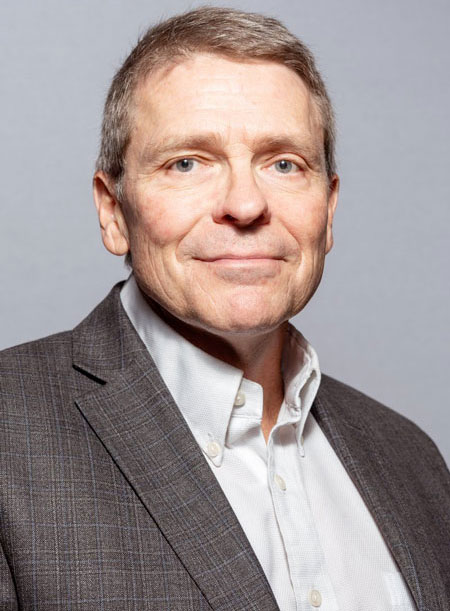Where There’s Smoak: Gregory Smoak’s Legacy as the Director of the American West Center
by Maximilian Werner
Greg Smoak
July 1, 2023, marks the end of an era for the American West Center. Gregory Smoak, associate professor of history, will step down as the center’s director, a position he has held since 2012. Over the course of his 11-year tenure, Smoak has accomplished a great deal on behalf of the center and the people it serves. “I first began working at the American West Center in 1988 and so when I assumed the directorship in the summer of 2012 [the center’s] history of success weighed on my shoulders.” he wrote in the introduction of his 2021 book “Western Lands, Western Voices.”
Although the center would ultimately thrive under Smoak’s leadership, his concern was not unfounded. At the time he took over, the center was almost half a century old and – owing to the work and vision of previous directors, including Floyd O’Neil, Patricia Albers, Dan McCool, and Matthew Basso – had earned a reputation for being one of the most unique and important centers of its kind, particularly in the context of its work with American Indian tribes as well as with other historically underrepresented groups, including Latino, Asian-American, Pacific Islander, and Eastern and Western European communities.
Under Smoak’s direction, the center has continued this work and expanded its focus to assist the National Park Service, Bureau of Land Management, and United States Forest Service with various public land issues and projects. Together, these collaborations exemplify what the historian Robert Kelley defines as public history, which “refers to the employment of historians and the historical method outside of academia . . . .” The word “employment” refers to the process whereby one is given and paid for one’s work, of course, but its second sense – to make use of – is more germane to Smoak’s long-time, laudable, and fruitful emphasis on community engagement and learning, which has taken many forms and changed many people’s lives.
“History can be rewarding in various ways,” Smoak said. “And not just in academics.” History is like other disciplines insofar as it benefits from revision, not only in terms of what it is and how to do it, but who gets to do it and what it means to do it well. “Culture says there is one measure of success, but there is more to it,” Smoak added. “The work people do at the center offers more diverse opportunities and expands the limits of what can be done as a historian.”
Smoak’s own understanding of history and the role of the historian has certainly evolved over the years, a process that he directly attributes to his work at the center. “My success is because of this place,” he said. But of all the rewarding things that he has been part of, two things stand out: his ongoing work with the American Indian tribes and his mentorship of graduate students.
Smoak has worked on various land and water issues with several tribes, but he’s worked for more than 30 years with the Shoshone Bannock Tribes to help document the people’s treaty rights and land use practices. He’s also worked in a similar capacity with Ute, Monos, and Navajos. Following the precedent established by the center’s first director, Floyd O’Neil (whom Smoak credits with playing a seminal role in shaping the center’s culture and achievements), Smoak has dedicated a significant part of his career to studying, researching, and offering his expertise to American Indian tribes as they’ve sought to have their history and sovereignty honored.
Dozens of aspiring historians got their start at the American West Center, and Smoak was there for many of them as director, public historian, thesis committee member and/or chair, or as a colleague. But as a mentor, Smoak has always prioritized his work with students. History doctorate student and assistant director of the AWC, John Flynn, is just one of many students who have benefitted from Smoak’s commitment to training and supporting the next generation of historians. “Greg has strived to make the AWC a place of community for grad students, and he has helped us work on tons of cool projects,” John said. “Many of the fantastic public history projects I've gotten to work on were only possible because of Greg. Safe to say, much of my success at the U is thanks to his support.”
Whether as a mentor or public historian, Smoak has a reputation for making history meaningful to people both inside and, perhaps more importantly, outside the field. “Do we work for each other or for the people? It can be both,” he said, which in turn “opens up possibilities about who is included in history.” As is true with other scholars within the humanities, history scholars have spent the better part of the last two or three decades working to broaden the subject’s reach and relevance. Smoak has been at the forefront of this effort both as a scholar and as the director of the center. “History is not homogenous,” Smoak said. “If we hope to transform society for the better, we need to account for its diversity.”
Making changes of this magnitude has taken time and effort. “It’s a gradual process,” he said. “It has ebbs and flows.” Although Smoak will no longer be the director of the center, as a teacher, mentor, scholar, and public historian, he will continue advancing the study, understanding, and appreciation of history in his bid to make the world a better place.

